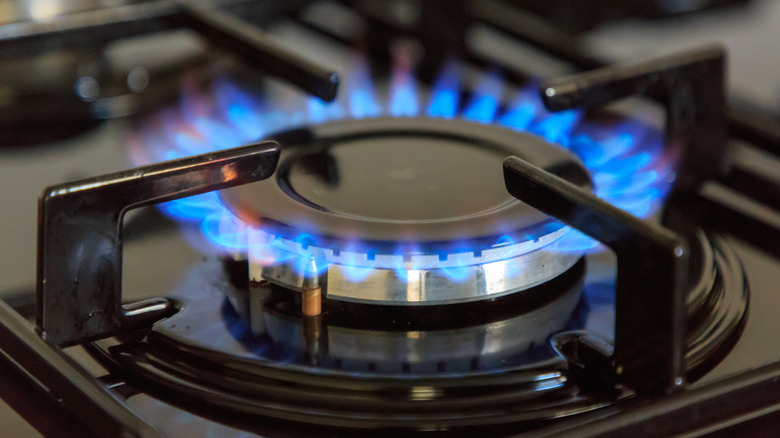New York Has Officially Banned Natural Gas Stoves. Here's What To Know
The state of New York has officially moved to ban the installation of gas stoves and appliances in new residential buildings, according to CNN. The outlet reports that the measure was signed by Governor Kathy Hochul as part of the state's budget plan, released on May 2. The decision follows a report from the U.S. Consumer Product Safety Commission (CPSC), which suggested that a ban on gas stoves could be implemented in the coming years due to new research showing the appliances contribute to climate change as well as respiratory issues like asthma in children. Though no action was taken at the time of the report's release, it still stirred up controversy, with many conservative politicians and social media users complaining of government overreach.
While some cities, including Berkeley, California, have previously moved to ban the use of natural gas appliances in new building construction, New York is the first state to do so, and though there are a number of carveouts to the new legislation, those involved are bracing for the legal challenges ahead.
The ban is being touted by climate activists who believe this is an important step in reducing New York's carbon footprint, since burning natural gas releases significant amounts of methane. CNN notes that this is one way in which New York has resolved to meet its committment of becoming carbon-neutral by 2050, as the state is still adding 250,000 metric tons of pollution each year through new residential construction, which includes gas appliances and heating.
What will this change?
So what impact will this new law have on home kitchens in New York? Starting out, very little. Despite concerns espoused online in January, bans on gas appliances do not apply to existing homes or buildings. As CNN explains, the new law will put a ban on installing electric stoves, ovens, and heating systems in new residential buildings under seven stories high by 2026, and in taller residential buildings by 2029. Homes that already have gas appliances will not be required to change anything, so plenty of homes with gas stoves will still be available for those who have preferred it for cooking for decades.
While future home cooks will have to learn how to properly cook with induction and traditional convection stovetops, New York is not planning on interfering with how much of the state does business, as the ban doesn't apply to hospitals, commercial and industrial spaces, laundromats, or restaurants. Witnessing the challenges and eventual overturning Berkley's gas ban faced, New York officials saw the wisdom in not rocking every boat at once.

